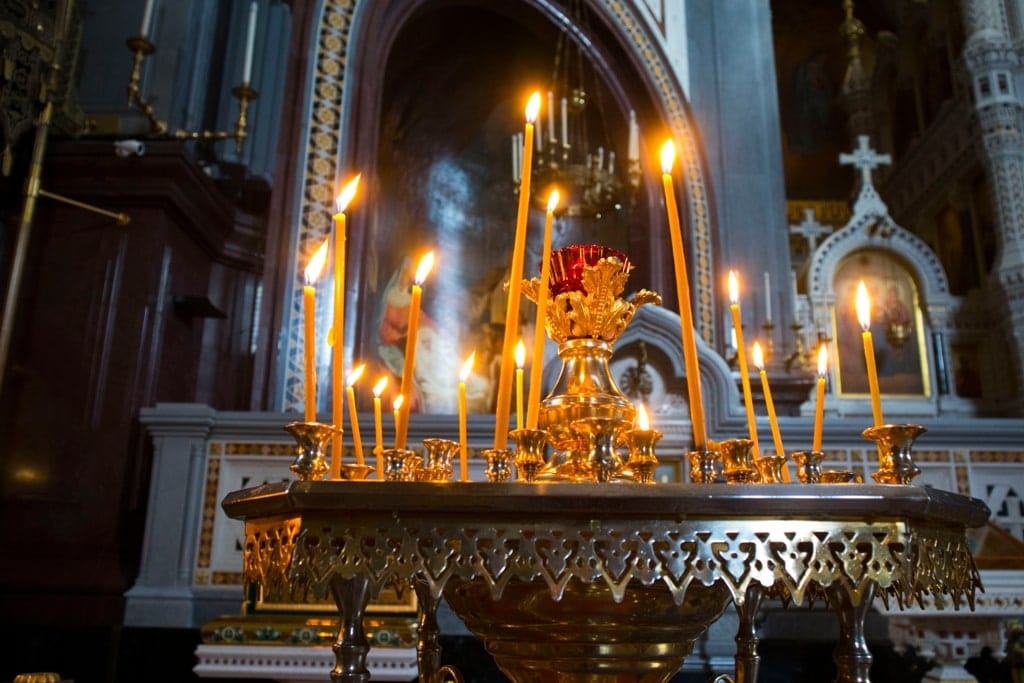Religion in Greece is an extremely important part of culture and heritage. The tremendous importance it has played in the Greek identity makes religion completely interwoven in everyday life in ways that aren’t necessarily connected to faith as much as they are in folklore.
Although secularism and the right to freely practice any religion is a right considered fundamental and protected in the Greek Constitution, Greece is not a secular state. The official religion in Greece is Greek Orthodoxy, which is part of Orthodox Christianity.
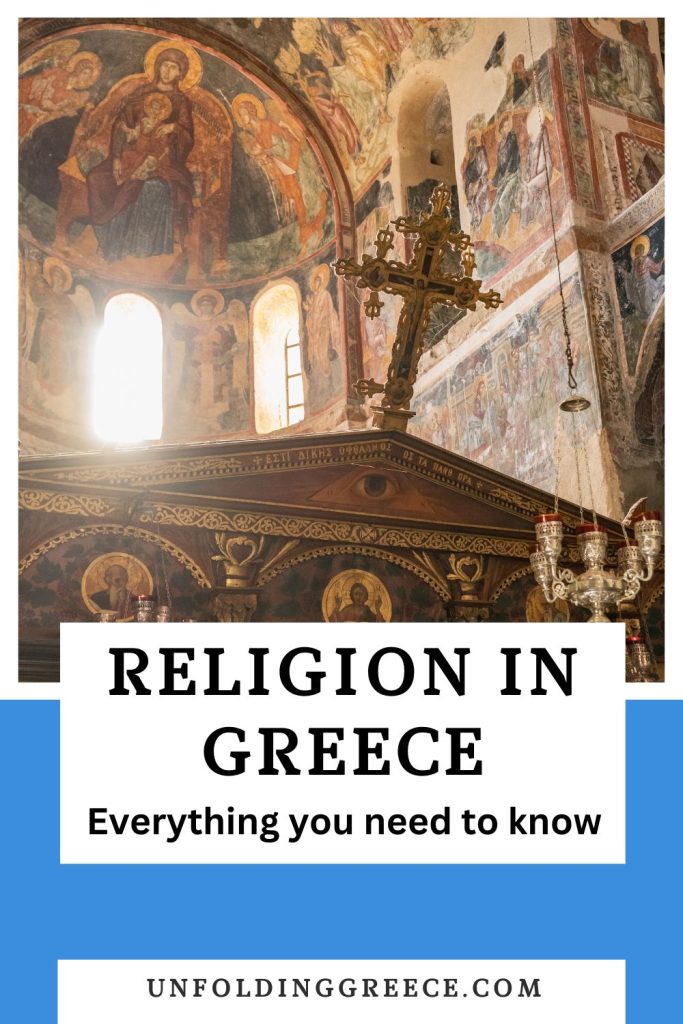
Greek identity and Greek (Eastern) Orthodoxy
Greek Orthodoxy is extremely pivotal for the Greek identity, as it was part of the trifecta of qualities used to define who is Greek on the eve of the Greek War of Independence: because Greece had been under occupation of the Ottoman Empire whose religion was Islam, being Orthodox Christian and practicing in the particular protocols developed within the Greek Orthodox Church was a major element of Greekness together with speaking the Greek language and having been raised within the Greek culture and traditions.
In other words, identifying as a Greek Orthodox affirmed the Greek identity as opposed to that of simply a subject of the Ottoman Empire or a Turk. Religion for Greeks became a lot more than just private faith, as it separated and distinguished them from those they perceived as occupiers.
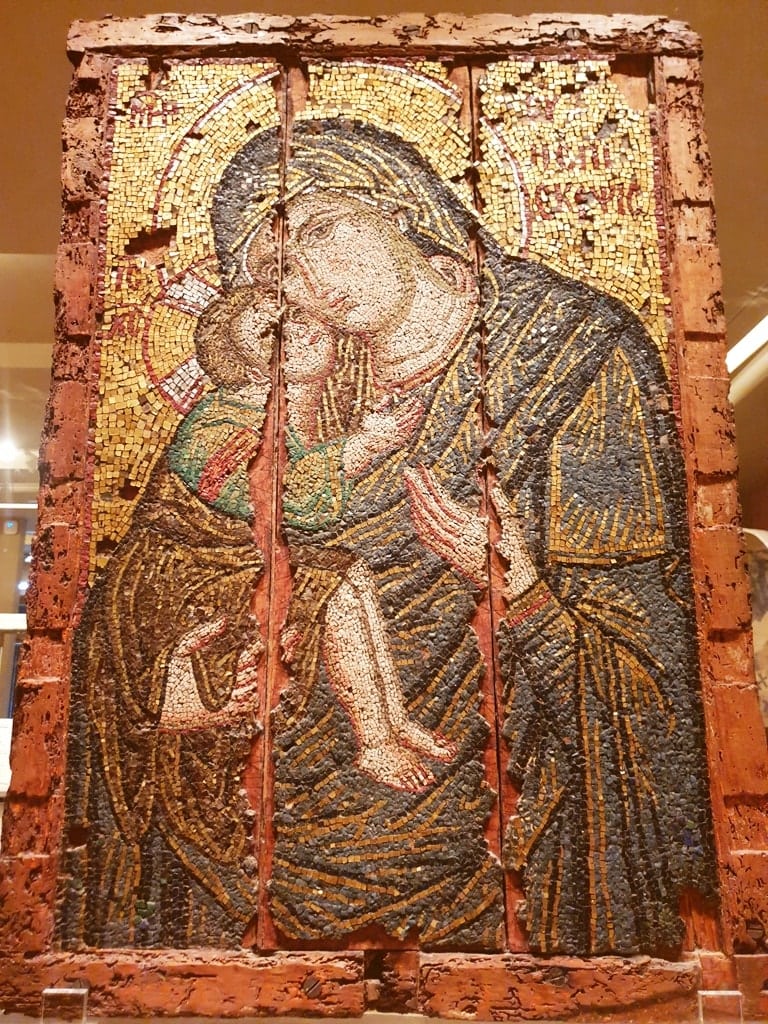
This historical fact is what has intertwined Greek heritage with the Greek religion, which is practiced by a whopping 95 – 98% of the population. Often, even when a Greek person identifies as an atheist, they will observe the customs and protocols of the Greek Orthodox tradition because it is part of folklore and heritage, and thus part of their identity despite not being part of their spiritual beliefs.
There are churches everywhere
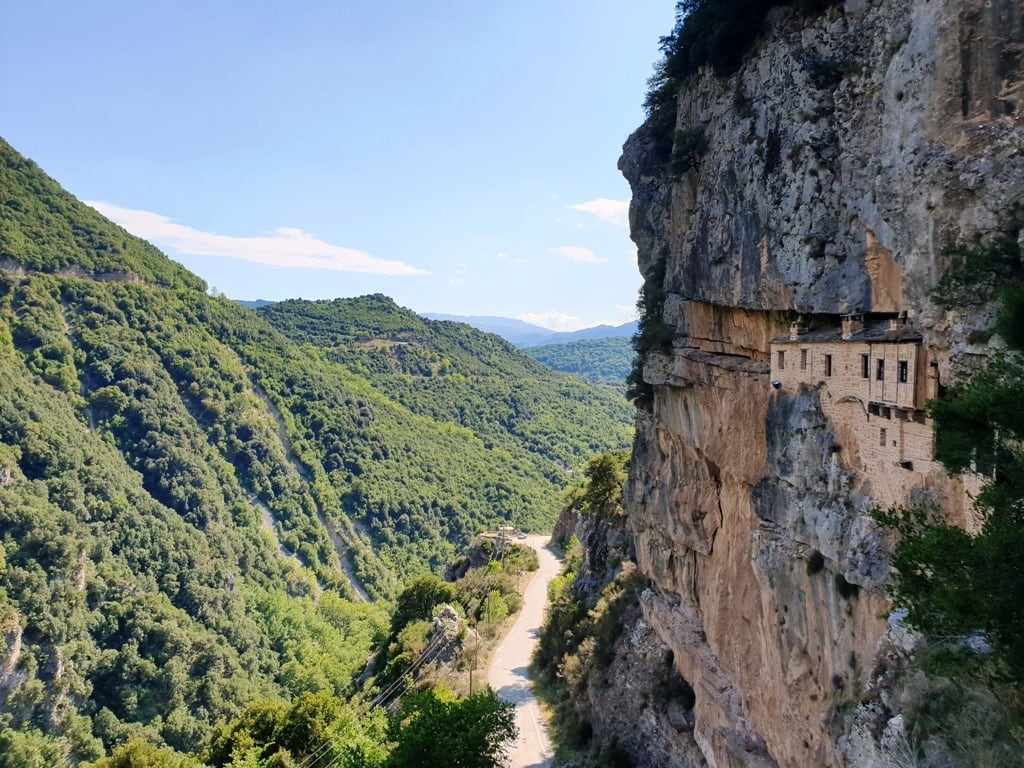
Knowing how important religion is in Greece, it comes as no surprise that there are churches literally everywhere. Even in the remotest part of Greece, at lonely mountaintops or precarious crags, if there is an edifice, chances are it will be a church.
This prevalence of places of worship among the Greeks is not a modern thing. Even during ancient times, Ancient Greeks also tended to include religion as part of their identity as Greeks vs. non-Greeks. They, therefore, scattered ancient temples, big and small, all over Greece and everywhere else where they roamed or founded colonies.
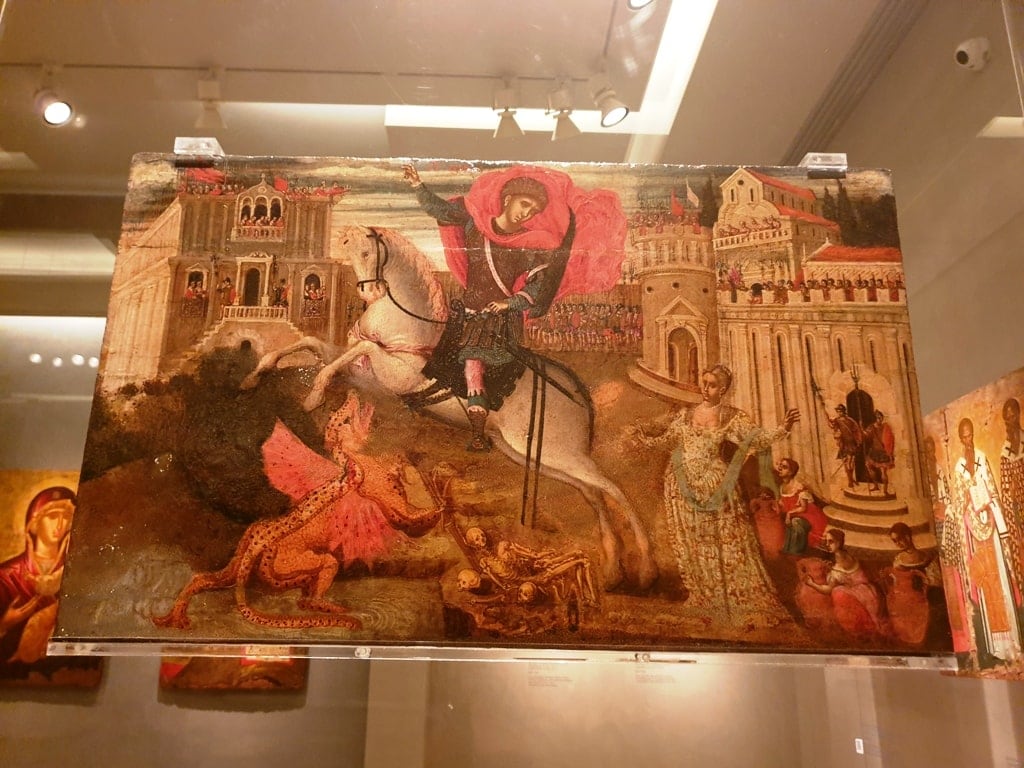
Often, as the centuries progressed and Greeks converted to Christianity, these very temples also got converted into churches or used to build them. Even in the iconic Acropolis of Athens, the Parthenon was converted into a church in honor of the Virgin Mary, called “Panagia Athiniotissa” (Our Lady of Athens).
That church retained and preserved the Parthenon intact until it was ultimately blown up by Venetian cannon fire in 1687. What was left, which had been used to build a mosque during the Ottoman occupation, was torn down in 1842 by order of the newly founded Greek state.
If you drive along the roads of Greece, you may also see tiny church models as effigies at the sides of the road. Those are put in place where deadly car accidents have taken place in memory of those who died and are considered legitimate shrines where memorial liturgy can take place.
Check out: The most beautiful monasteries to visit in Greece.
Religion and Culture
Name giving: Traditionally, name giving is done during Greek Orthodox baptism, which is performed when the child is under a year old. The strict tradition wants the child to receive the name of one of the grandparents and definitely the name of an official saint.
The reason for giving children the names of saints of the Greek Orthodox Church is an indirect wish: a wish for that saint to be the child’s protector but also a wish for the saint to be the child’s example in life (i.e. for the child to grow to be virtuous and kind). That’s why in Greece name days, where they celebrate on the day of the saint’s commemoration, are as important or even more important than birthdays!
Greeks also give ancient Greek names to their children, often in pair with a Christian name. That’s why it’s quite frequent for Greeks to have two names.
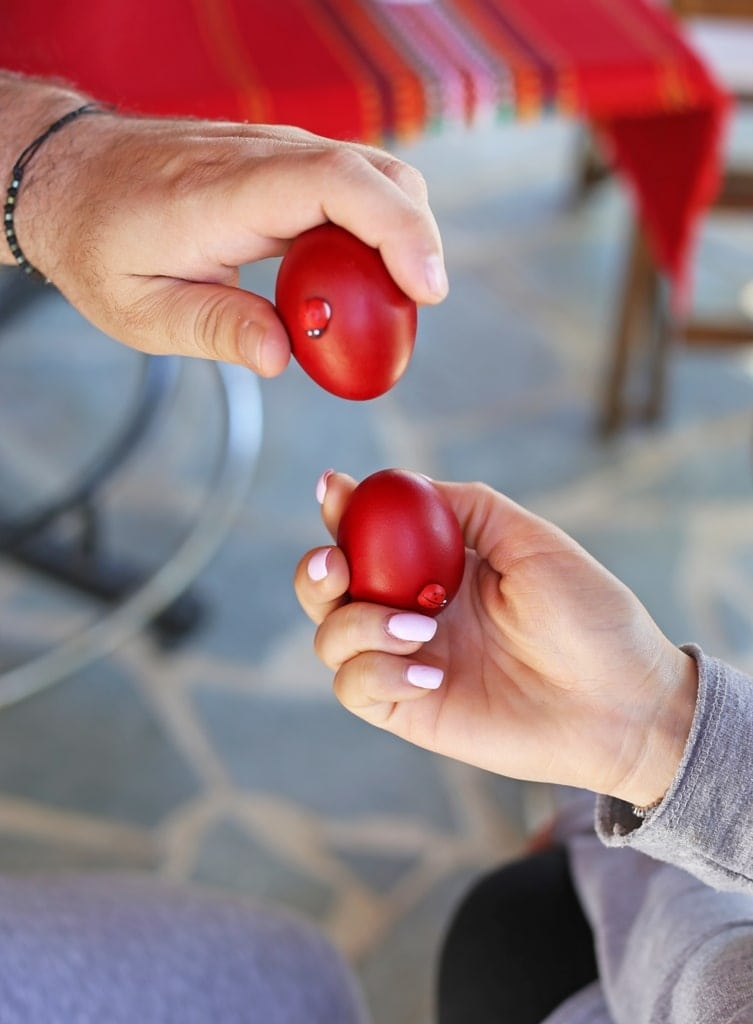
Easter vs. Christmas: For Greeks, Easter is the biggest religious holiday rather than Christmas. That is because for the Greek Orthodox Church, the biggest sacrifice and miracle is Jesus’ crucifixion and resurrection. An entire week is invested in reenactment and solemn communal prayer, followed by intense partying and feasting for two, even three days depending on the region!
While Christmas is considered a relatively private holiday, Easter is a family holiday and a community holiday wrapped up in one. Customs around Easter are innumerable and vary across regions, so if you are a fan of folklore consider visiting Greece during Easter!
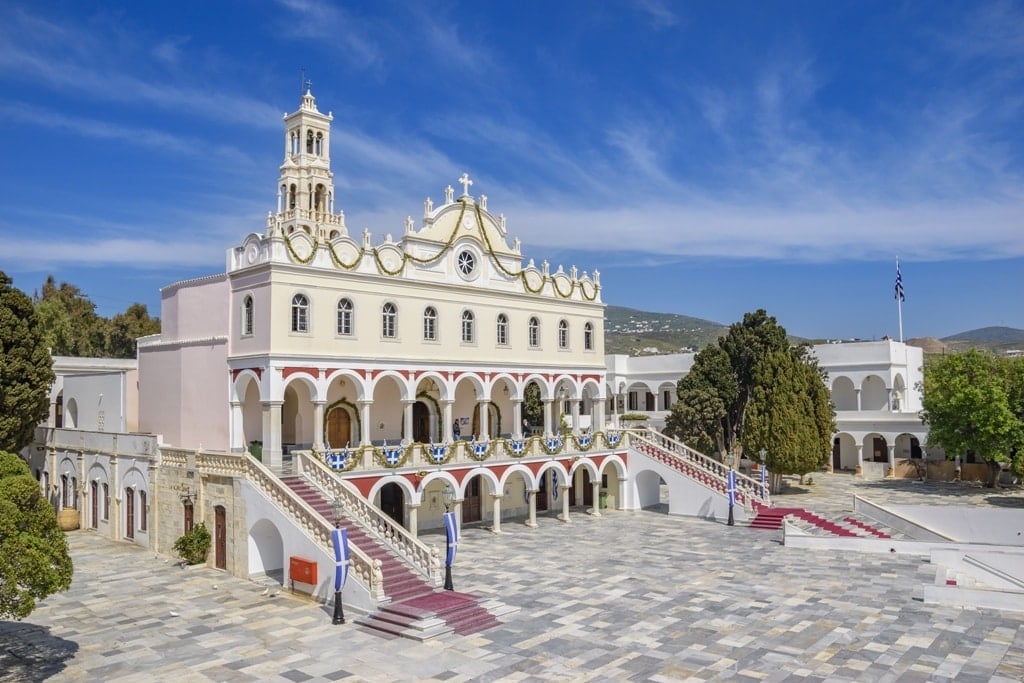
Panigyria: Each church is dedicated to a saint or a specific major event within the Greek Orthodox Dogma. When the commemoration of that saint or event comes around, the church is celebrating. These celebrations are great cultural and folklore events, with music, singing, dancing, free food and drink, and general partying going on well into the night.
These are called “panigyria” (which means festivity or party in Greek). In some churches, there is even a big open-air flea market that appears just for the day alongside the merriment. Always check to see if there is a ‘panigyri’ going on in the region you’re visiting!
Satire of religion: It is not uncommon for Greeks to make jokes or satire about their own religion, both on matters of faith as well as the institution of the church. Though observance in churches is considered important, many Greeks hold the belief that true religious practice can happen completely privately in one’s own home without the need of a priest intermediary.
Many times official admonitions issued by the church will get criticism on the same level as politicians do.
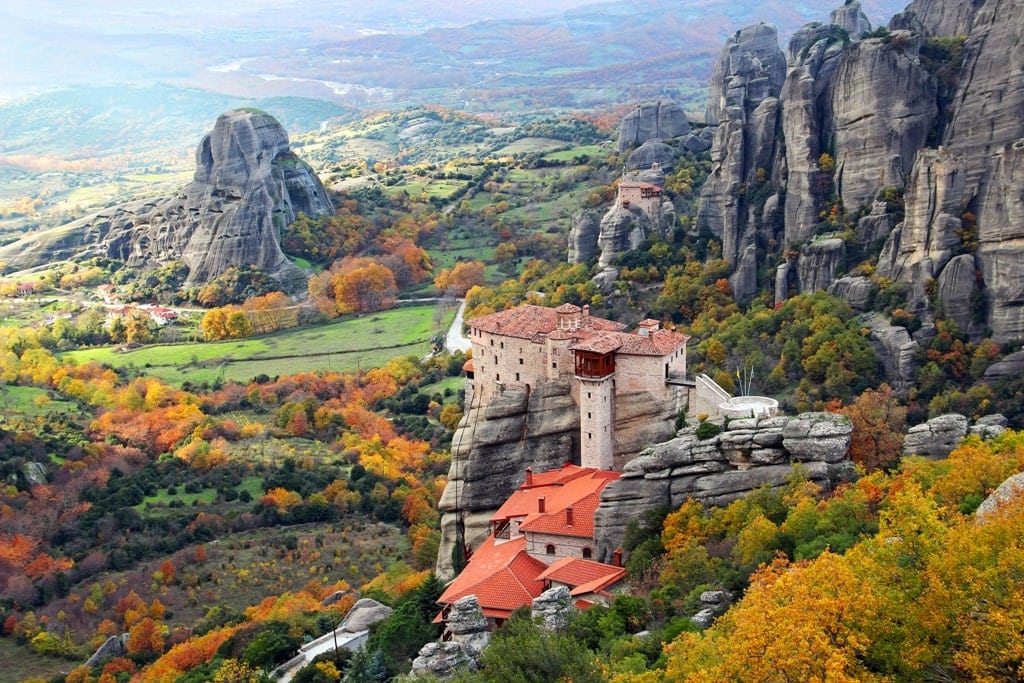
The other religions in Greece
The two other religions that are significantly observed in Greece are Islam and Judaism. You will find Muslim Greeks mostly in Western Thrace, while there are Jewish communities everywhere.
Unfortunately, after WWII, the Jewish community was decimated in Greece, especially in areas like Thessaloniki: out of 10 million people before WWII only 6 thousand remain today. Like the Greek Orthodox Greeks, the Jewish-Greek community had historically been quite significant, with its own unique Greek identity, namely the Romaniote Jews.
While the Greek Orthodox Church made significant efforts to protect the Jewish population from the Nazis and was fully successful in remote areas like the islands, in the cities it was almost impossible despite efforts like issuing false identity cards and hiding Jewish people in various homes.
There are also around 14% of Greeks who identify as atheists.

